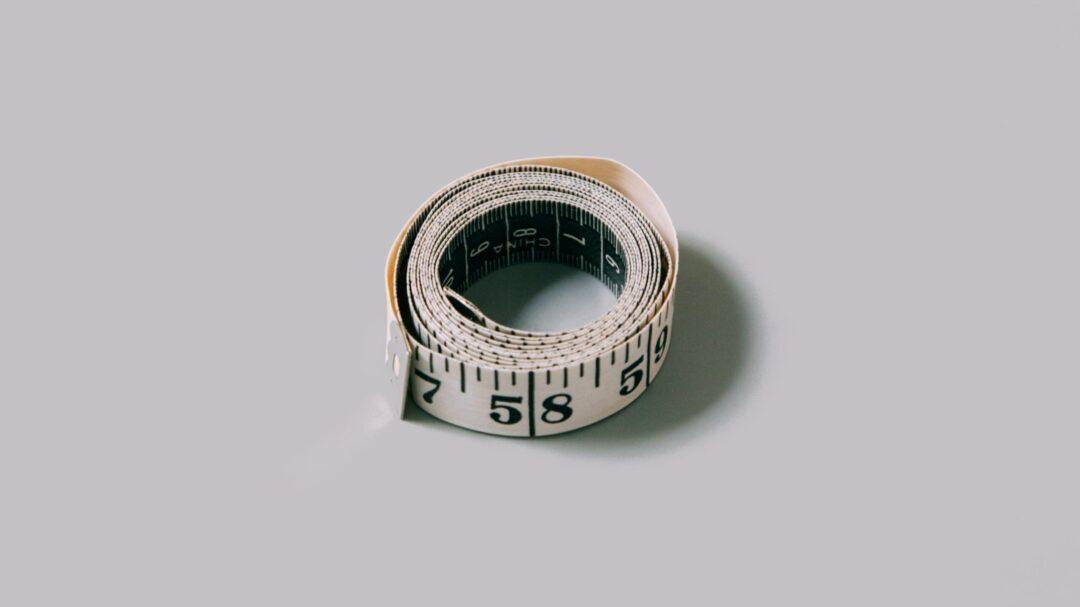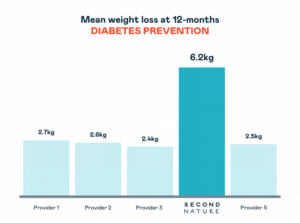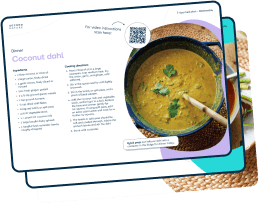The basic science of weight loss is simple. You need to burn more calories than you consume, and you’ll lose weight.
This understanding leads to the advice that we simply need to count the number of calories we’re eating, subtract it off and we’ll be in a caloric deficit and lose weight.
These studies suggest that we’re not only poor estimators of the calorie content of foods. As humans, we’re also prone to error and are likely to miss our snacks or fundamental elements of our meals.
While you might be doing your best to track what you’re eating to ensure you’re in a calorie deficit, you’re likely underestimating how much you’re eating.
You may also be omitting entire snacks or elements of your meals that contribute to your total energy intake.
Inaccuracies aside, there are other issues with calorie counting that might mislead you when you’re tracking calories.
By focusing too much on the calorie content of foods, you might not be consuming higher-calorie foods that are more nutritious, like dairy, nuts, or avocados, thus leading to a feeling of hunger and an increased desire to eat.
By focusing on consuming only ‘low-calorie foods’, you’re likely restricting yourself too much, not giving your body enough of what it needs, and then you overcompensate by eating more. For many, this comes from snacks in between their low-calorie meals.
This change in dopamine signalling encouraged the consumption of ultra-processed foods rich in refined carbohydrates, added fat, and sugar.
By focusing on the quality of the foods you’re consuming and not restricting high-calorie, high-fat foods like dairy, nuts, and avocado – you might find it a little easier to achieve a calorie deficit without feeling hungry.
This approach is why lower-carb diets have become more prevalent in recent years. Research shows they help people achieve a higher level of food satisfaction and fullness without consuming too many calories, and they lose weight.
2) You’re not eating enough
Calorie counting and strict diets often encourage a crash diet approach of losing a lot of weight quickly and then attempting to maintain higher levels of weight loss in the long term.
It’s believed that this approach encourages people to ‘buy in’ to their diet and helps them continue making positive changes as they become motivated by their early success.
While this may work for some people, many of us will struggle with the strict rules and restrictions that these regimes will place on us, and the lack of enjoyment and satisfaction from food will result in a rebound effect where we overeat and regain the weight lost.
A randomised pilot study was conducted on overweight adults to determine the impact of a low-level calorie restriction (10% calorie deficit) to a moderate level (30% calorie deficit) on weight loss, hunger, and food satisfaction.
The results showed that the moderate calorie restriction group lost more weight after six months but then started to regain weight on average. In contrast, the low-level calorie restriction group lost weight more gradually and maintained their weight loss.
After 12 months, there was no difference in weight loss, with both groups losing around 9% of their body weight.
Interestingly, the moderate calorie restriction group also reported more hunger, more desire to eat foods outside of the study recommendations, and lower satisfaction with the foods offered during the study.
This is consistent with the science behind metabolic adaptation and the brain’s starvation response to caloric restriction. The more you try to restrict your intake, the more your brain will send signals to the body encouraging you to eat more.
This research suggests that over the long term, you’re more likely to lose weight and avoid weight regain by not being so restrictive in your approach.
Don’t fear fat
Fat is often avoided when people are counting calories or on strict diets because it contains more calories per gram than carbohydrates.
However, research has shown that consuming more fat and fewer carbohydrates can support weight loss and help you burn fat.
This was demonstrated by a study comparing a low-fat, low-carbohydrate, and Mediterranean diet (which is naturally higher in fat from olive oil, pork, and fish) and found that after two years, people following a low-fat diet lost an average of 3.3kg.
Comparatively, those following a Mediterranean diet lost 4.6kg and low-carbohydrate 5.5kg.
Interestingly, the individuals on the lower-carbohydrate diet were instructed to eat until they were comfortably full. In contrast, the individuals on the low-fat diet were required to consume no more than 1600 kcal per day.
Despite this, the low-carbohydrate group consumed fewer calories than the low-fat diet and eventually lost more weight. This suggests that diets higher in fat can be ‘self-limiting’ and help people lose weight without counting calories.
Key points:
- Calorie counting and fad diets often promote dramatic cuts in energy intake, leading to significant weight loss in the short term.
- However, research has shown that less restrictive diets can support as much weight loss in the long term without the adverse effects of feeling hungry and deprived.
- Research has shown that consuming more fat as part of your weight loss approach can help you eat fewer calories without feeling hungry and deprived.
3) You’re relying on exercise alone
People often assume that exercise is all you need to do to lose weight. The pounds should drop by burning extra calories and continuing to eat the way you are.
Unfortunately, what tends to happen is that individuals compensate for most of the energy they’ve burned through exercise – and you’ll experience little to no weight loss.
A recent study compared the impact of exercise for two or six days a week on overweight participants’ energy intake, hunger hormones, and weight loss.
The study showed that weight loss between the two groups was very modest, with the six-days-a-week group losing 1.04kg and the two-days-a-week group losing 0.76kg.
Interestingly, despite differences in exercise intensity, time, and changes in the hunger hormone ghrelin – both groups compensated equally in line with their exercise levels. So, the participants that exercised more simply ate a bit more to compensate for this.
This is consistent with multiple lines of evidence suggesting that exercise is often not enough to promote significant weight loss in the long term.
Focus on what you’re eating, too
While exercise alone doesn’t seem to support significant weight loss, diet and exercise interventions are effective at supporting weight loss, which seems to be primarily driven by the change in eating habits.
A randomised controlled trial compared the impact of exercise alone, diet, or exercise and diet together on weight loss after 12 months in overweight participants.
The results showed that both the diet and diet and exercise groups lost a significant amount of weight (10% and 9%), while no weight loss was observed in the exercise group.
This study also analysed a measure of cardiovascular fitness, which we call peak oxygen consumption. Interestingly, the diet and exercise group showed a more significant improvement than exercise alone (17% vs 8%).
Peak oxygen consumption is not only a measure of fitness but also of your health. Research has shown that the higher your peak oxygen consumption, the lower your risk of all-cause and cardiovascular mortality.
Exercise is about more than calories
Exercise is often viewed through the lens of how many calories it burns. But this overshadows exercise’s overall impact on our quality of life.
Exercise has been shown to lower your risk of all the major chronic diseases such as heart disease, type 2 diabetes, and cancer. It’s also been shown to help lower stress and improve mental health.
Additionally, research has shown that individuals who successfully lose weight and keep it off tend to be more physically active than those who regain the weight they lose.
So, exercise – cardio, strength training, or any form of physical activity like walking the dog or gardening – can be an excellent way to improve your health, reduce your risk of chronic disease, and increase your chances of maintaining weight loss in the long term.
But how do I combat overcompensating from exercise?
In the long term, exercise has been shown to reduce feelings of hunger and increase feelings of fullness (satiety). Exercise improves satiety signalling in your brain, allowing you to eat less overall.
However, in the short term, or when you’re new to exercise, you might initially feel more hungry as your body adapts.
Here are five ways to help you avoid exercise-induced hunger during a weight loss journey:
- Eat enough healthy food in your main meals: As we’ve highlighted in this article, eating until you’re comfortably full in each meal will provide your body with everything it needs.
- Stay hydrated and drink enough water: Your body can make you feel hungry when you’re not hydrated. If you keep on top of your water intake, this will help to keep hunger at bay.
- Eat enough protein: Protein promotes greater feelings of fullness compared to carbohydrates, be sure to consume at least 30-40g of protein in each meal.
- Eat healthy snacks: Enjoy protein and fibre-rich snacks like peanut butter and apple if you’re feeling hungry between meals.
- Time your workouts to finish in line with your meals: If you plan a workout to finish just before your main meals, you’re less likely to snack and overcompensate. So, you can workout, have breakfast, or workout just before lunch. Whatever works for you.
Key points:
- Exercise as a sole intervention has not been shown to promote weight loss.
- However, exercise combined with improved eating habits promotes weight loss and may support more successful maintenance of weight loss.
- Exercise is more than how many calories it burns; it promotes significant health benefits independent of weight loss.
- Exercise can support satiety in the long term, helping you eat less.
- However, it can promote hunger in the short term. You can avoid this exercise-induced hunger by eating enough in your meals, staying hydrated, eating enough protein, eating healthy snacks, and timing your workouts well.
Take home message
The main reasons you’re not losing weight are likely down to the poor advice you’ve been trying to follow to help you achieve the weight loss you’re after.
The diet culture has continued to promote the notion that weight loss is all about the numbers. All you need to do is count your calories, and you’ll lose weight.
The truth is much more complicated than that. Our body is specifically designed to fight against severe energy restriction to protect us from harm and increase our chances of survival.
You can achieve sustainable weight loss. But it starts with ignoring much of what you’ve previously been told you need to do to lose weight.
If you’d like to experience a weight loss plan that isn’t restrictive and will leave you feeling full, satisfied, and full of energy, click here to try our 7-day NHS-trusted meal plan.





